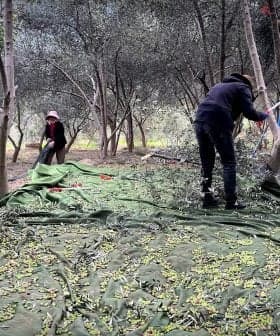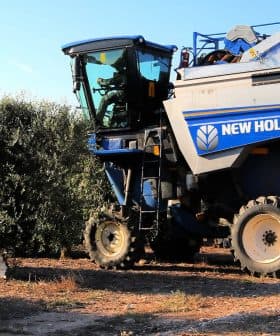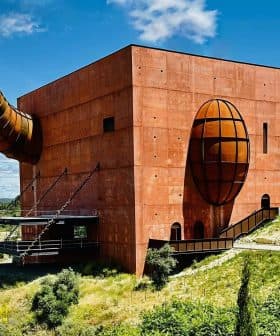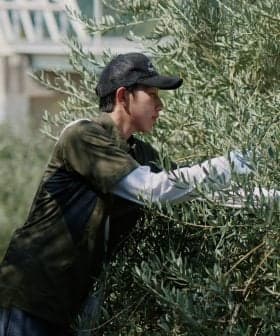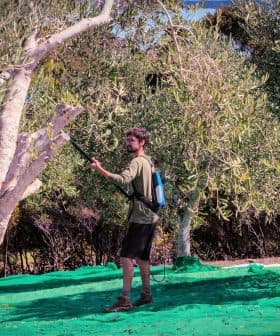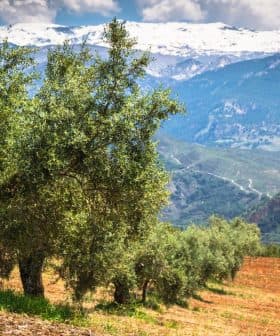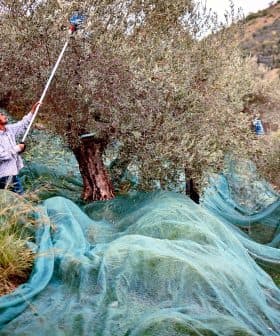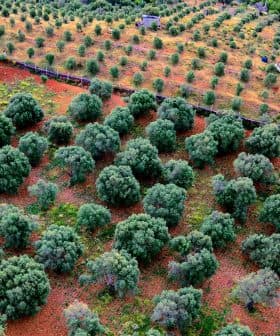Rehabilitating Olive Trees in Aragón to Stem Spain’s Rural Exodus
Apadrina un Oliva has put the area’s abandoned olive trees up for adoption. The result has handed a lifeline to the town and its residents.
 Photo: Apadrina un Oliva
Photo: Apadrina un Oliva The ongoing rural exodus in Spain is a significant issue, with most of the population concentrated in Madrid and along the coast. In response, the organization Apadrina un Oliva is revitalizing the region of Oliete in Aragón by finding sponsors for abandoned olive trees, providing steady income to farmers and attracting tourists to the village. Through this initiative, the group has successfully brought new families to the area, bolstered the local economy, and provided a model for similar projects across the Mediterranean basin.
One of the most critical issues facing Spain is the ongoing rural exodus.
About 95 percent of the country’s population lives on just 30 percent of the land, with most people living in Madrid and along the coast.
We are completely convinced that it is an idea that can be taken to other territories. It does not even have to be with abandoned olive trees.
A 2019 government report said 48 percent of all municipalities have fewer than 12.5 inhabitants per square kilometer. Parts of Aragón and Extremadura, the fourth and fifth largest regions in Spain by land area, have population densities on par with those of Siberia – just two people per square kilometer.
See Also:In Italy, Abandoned Olive Groves Find New LifeIn the town of Oliete, located in the center of Aragón, one organization is working to revitalize the region by recovering 100,000 abandoned olive trees, some of which have been part of the landscape for hundreds of years.
Apadrina un Oliva, which translates into ‘sponsor an olive tree,’ finds people to pay an annual fee of €50 to adopt a tree.
In return, patrons – also known as ‘godparents’ due to similarities with the term sponsor in Spanish – receive two liters of extra virgin olive oil that is produced from the trees each year and photos to show the recovery operations.
“The idea came from recovering a single tree,” co-founder José Alfredo Martín Piñas told Olive Oil Times.
Alberto Alfonso, the group’s founder, had an epiphany while handpicking olives from his family’s grove in Oliete on an autumn day seven years ago. He noticed that he was alone in harvesting the trees. The neighbors’ fruit was falling to the ground and rotting.
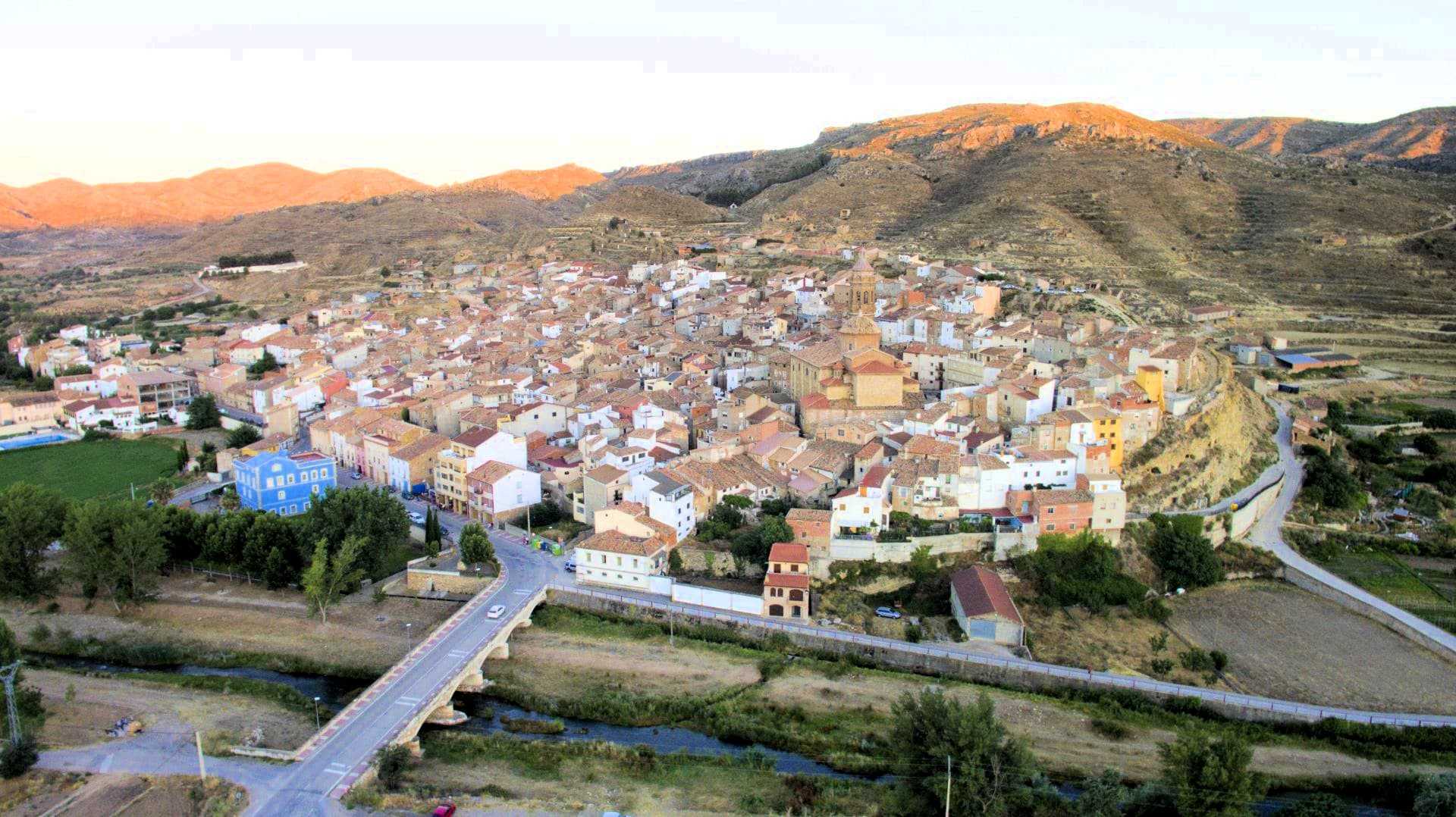
All photos courtesy of Apadrina un Oliva
Through happenstance, he met Martín’s brother, Adrían Martín, and friend, Pablo García-Nieto Rodríguez, who helped him found the organization. Martín and Sira Plana Marín, the fifth co-founder, joined later.
Historically, Oliete’s centenary olive trees were planted and harvested by local farmers for self-consumption. However, as the country’s rural exodus accelerated in the 1950s, ‘60s and ‘70s, the trees were abandoned and no longer produce olives.
According to data from Spain’s National Institute of Statistics, Oliete was home to 2,500 people at its peak in 1910. However, this figure fell to just 450 by 2011, the last year for which data are available. Unofficial estimates put the current population at about 365 as of 2020.
“People began to move from the towns to the cities looking for opportunities and began to abandon the rural environment,” Martín said. “When that happened, people found it much more profitable and easier to buy the oil in the supermarket than to go to the town and work the trees.”
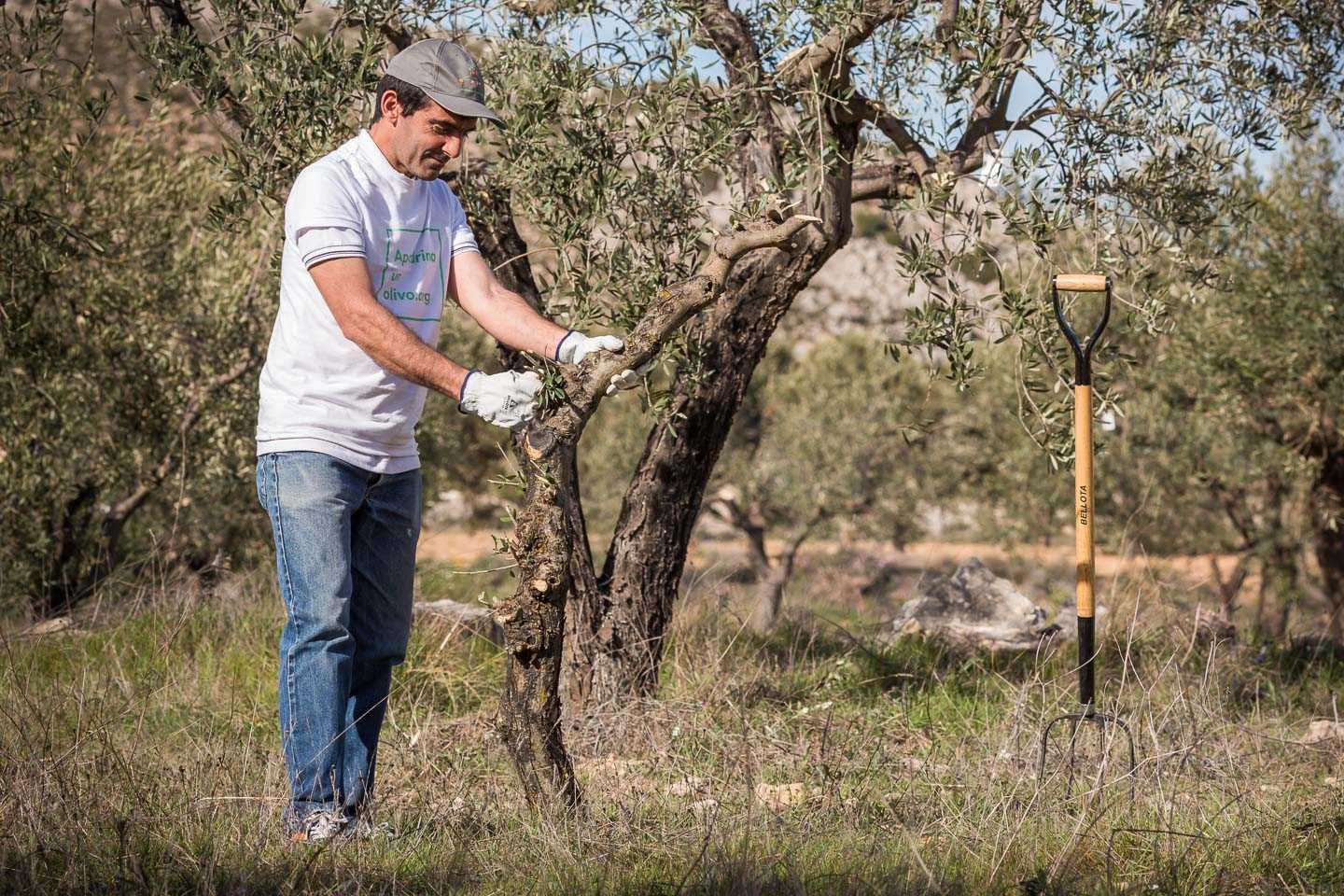
A local farmer working with Apadrina un Oliva recovers an olive tree.
As a result, 70 percent of the municipality’s trees remain abandoned and unproductive. It takes two to three years for the trees to be restored and begin to produce olives, but no farmers in the region can afford to wait that long. By finding sponsors for the trees, Martín and the co-founders provide a steady flow of income to the farmers before the tree yields any olives.
Since Apadrina un Oliva was founded in 2014, the group has recruited 6,000 sponsors, recovered 15,000 trees, brought 12 new families to Oliete and attracts roughly 3,000 tourists to the village each year.
“We started by giving work to the people of the town, to the young people who want to stay in the town,” Martín said. “Soon we had hired all the young people there, which were basically two, and we had to start bringing in new families, new settlers to work in the olive groves.”
These families brought their children with them when they moved to the municipality, which Martín said saved the local school system.
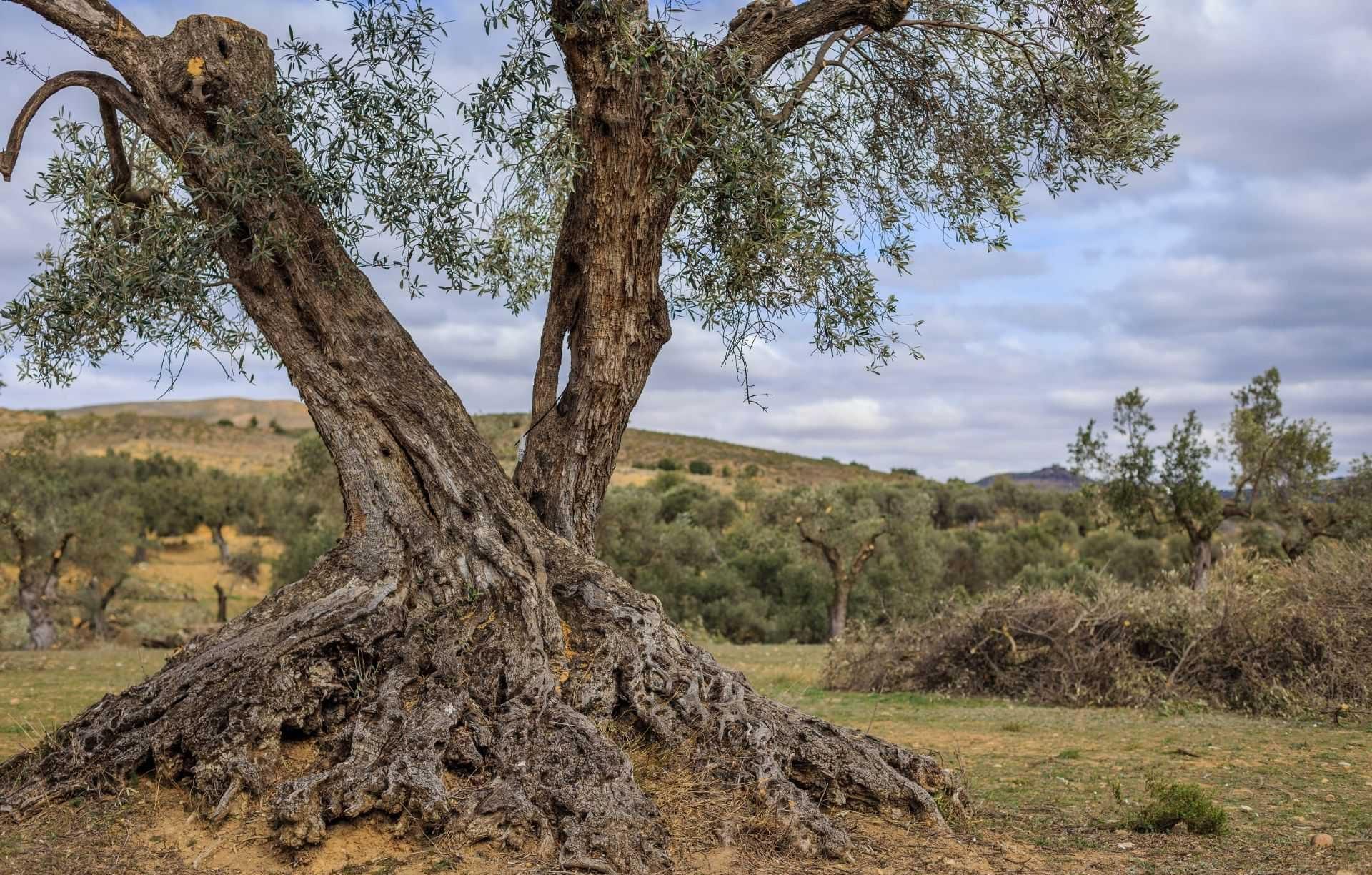
One of Oliete’s centenary trees.
The process of adopting an olive tree through Apadrina un Oliva begins online. Potential patrons can scroll through the offering of available trees to be sponsored, select the ones they like the most, enter some personal information and make the payment.
After that, the tree is ‘baptized’ and the name of the sponsor is attached to its trunk.
“The baptism is a very important moment because the person is creating history and attaching symbolic value to the tree,” Martín said. “This will generate an emotional link between the person and the tree.”
Afterward, Apadrina un Oliva sends regular updates to show sponsors how the trees are progressing. These usually come in the form of e‑mails, but there is also a mobile application that sponsors can download.
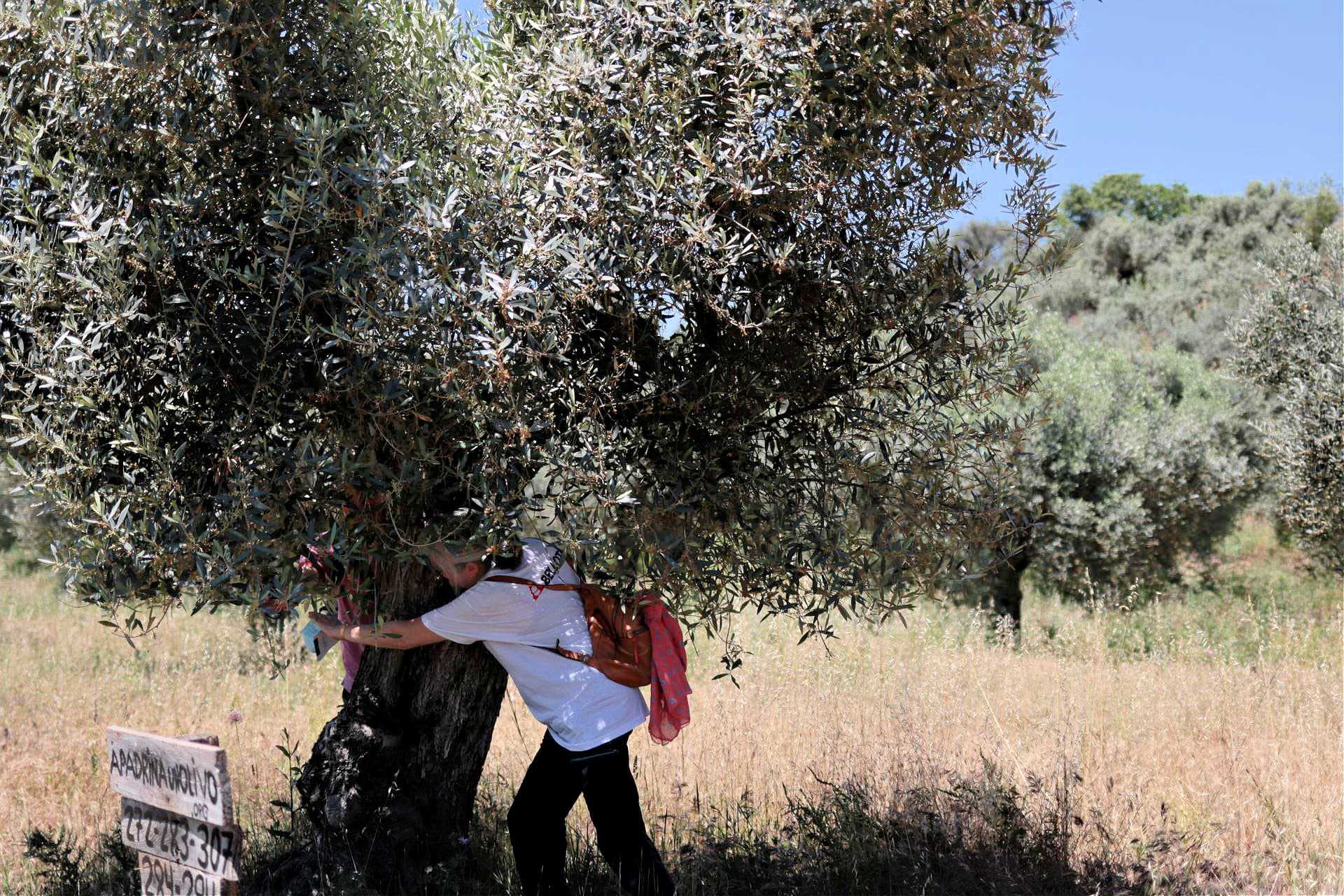
A sponsor visits an adopted tree.
At the end of the crop year, sponsors will receive two liters of either Empeltre, Arbequina or coupage extra virgin olive oil, all of which are certified with the Bajo Aragón PDO.
Martín said that Apadrina un Oliva produces about 45,000 liters each year and that number is expected to grow as more trees are recovered.
In 2016, the co-founders installed their own mill in the town. Along with harvesting the recovered trees, they also buy olives from about 200 small farmers, many of whom were in the process of abandoning their trees due to the lack of a local mill.
“Our idea was to build that oil mill and propose to the farmer that if they brought us the olives with a certain quality, we would remunerate them fairly,” Martín said. “This has meant that the market this year has paid €0.30 to €0.40 per kilogram of olives and we have paid €0.60.”
“It is much more than what the market pays, but it is what we understand as a fair price for the farmer can work and dignify their work and not abandon the farms,” he added.
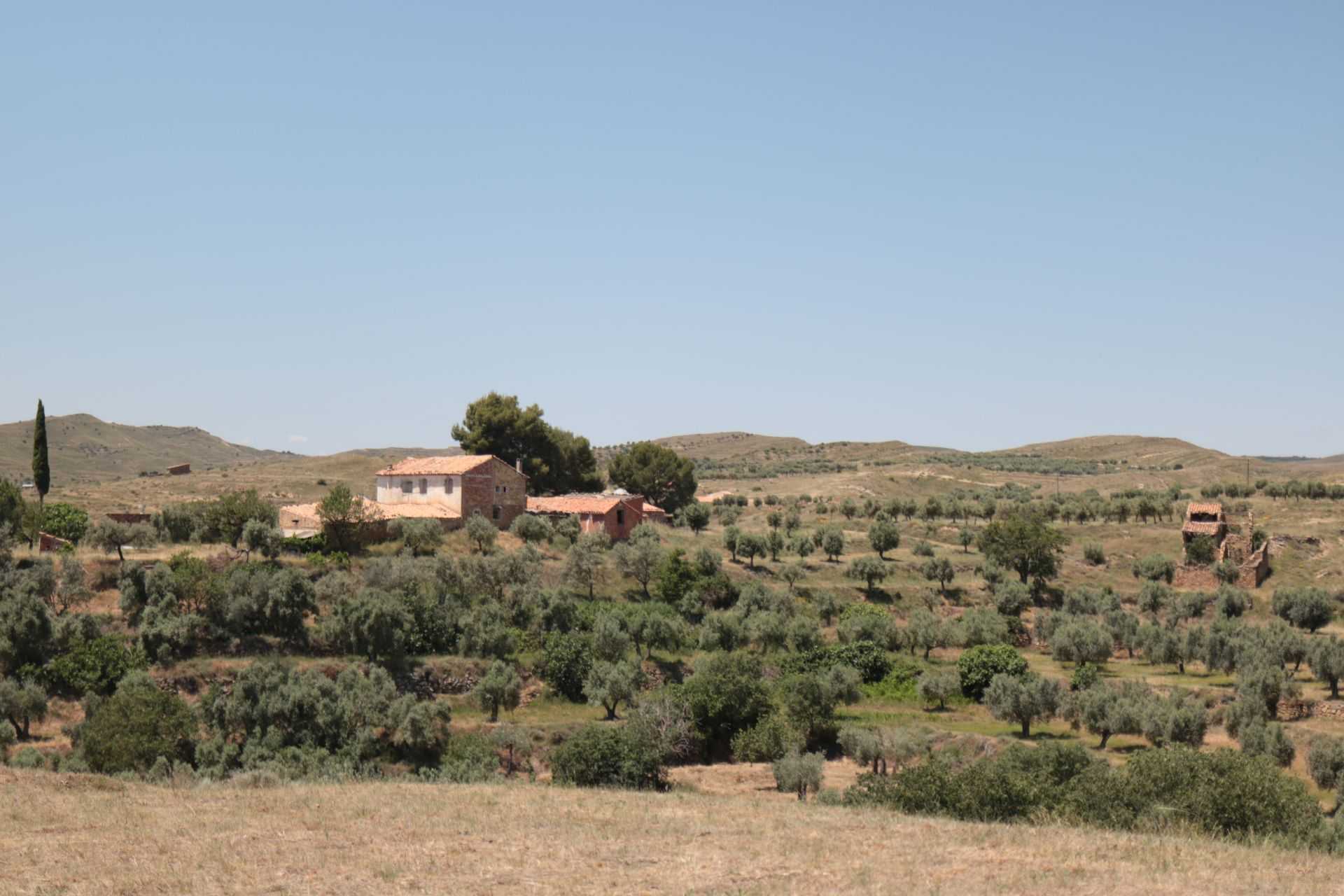
Along with producing extra virgin olive oil, which has gone on to 27 awards at various local and international olive oil quality competitions, Apadrina un Oliva has also bolstered the local tourism industry.
“Some 3,000 people come to visit Oliete every year to see their olive trees, which is something very significant for a town of 300 people,” Martín said. “Tourism is super important for us and also continues to provide a lifeline to the rural houses, restaurants and the gas station. It makes all that part of the economy work.”
He added that this is why the initial baptism of the olive tree is so important. People create an intangible connection with the tree, but bring tangible benefits to the town and its people.
Based on the economic and social indicators, Apadrina un Oliva has been a success in stemming the rural exodus from Oliete. Martín believes that these types of projects can be a solution for abandoned olive groves across the Mediterranean basin.
“We are completely convinced that it is an idea that can be taken to other territories, it does not even have to be with abandoned olive trees,” Martín said. “What is needed is for more people to be encouraged to take up these types of projects in their own regions.”
Share this article


